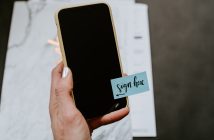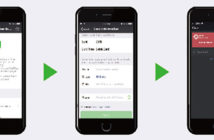I’ve written before about making international wire transfers with the help of a Chinese national, but recently I’ve been researching other ways to do this since I’m leaving China soon.
I read on a few blogs that foreigners can bypass the USD 500 per day limit for international wire transfers as long as they demonstrate proof of having paid taxes while legitimately employed here. In addition, the total amount of the transfer can’t exceed the value of the applicant’s annual post-tax salary.
My HR department confirmed that this was the case after a phone call to the Tax Bureau. In order to make the wire transfer, the employee must obtain an official “tax clearance certificate”(完税证明 wánshuì zhèngmíng) from the Tax Bureau proving that taxes were deducted from their monthly salary.
First off, not every person will need to visit the same Tax Bureau. From what I understand, this is tied to each company’s location and registration – details that flew way over my head and aren’t required knowledge anyway.
For example, I had to visit the Shichahai Tax Bureau while a British friend who used to work in the CBD had to visit the Shuangjing Tax Bureau. Check with your company’s HR or Finance department if you’re unsure.
According to the Shichahai Tax Bureau, I had to bring my passport and a copy of the company’s “tax registration booklet” (税务登记副本 shuìwù dēngjì fùběn). Thankfully, the company opted to send a Finance colleague with me in case any language barriers arose; she brought the original instead.
I highly recommend getting someone from HR or Finance to accompany you; the visit was…shambolic, to say the least.
The Shichahai Tax Bureau itself was located behind nondescript gray doors on Deshengmen Neidajie. Though the post-lunch opening hours were listed as starting from 1.30pm, an employee didn’t show up until 2pm. Luckily, it was very quiet.
When someone did show up, they barked at us and asked what we wanted. The woman at the front desk made a fuss about the fact that I had a foreign passport. When my Finance colleague didn’t promptly answer one of her questions, she yelled at her in Chinese: “Why did you even come with her [meaning me]? You don’t seem to know anything!”
Finally, she directed us to a Mr. Zhang Lei, a soft-spoken man in spectacles who led us into the back office to look up my tax records. He left us with two employees who alternated being good cop and bad cop; one irritably shouted questions at us while the other asked me questions about Canada and how my Chinese got so good (as an overseas Chinese, being complimented on my accented Mandarin was a first).
At first, they couldn’t find my tax records from the past two years – the maximum period of time allowable – in the system. “Ah $%#@,” I thought.
However, since I’d brought both my old and current passports, the good cop had the clever idea of inputting my old passport number for the search. Bingo – records from 2014 and 2015 showed up. It turns out my company had never updated my passport number for tax filings when I changed it in 2012. Mistake number one.
In addition, the tax filings were for some reason listed under my Chinese name instead of the English name on my passport. Mistake number two. Luckily, the Tax Bureau accepted to print out my tax records anyway, but I could see this potentially being a problem for other people.
For some reason, the Tax Bureau couldn’t find my detailed tax records for 2016 even though my company confirmed they’d been filed monthly. After a quick search, Mr. Zhang confirmed that taxes were deducted from my salary in 2016 so far, but the Tax Bureau couldn’t print out the itemized records the same way they could for 2014 and 2015.
“Don’t worry,” said the good cop. “I’m pretty sure you’ll still be able to make the money transfer at the bank.”
Both the good cop and the bad cop warmed to us as the visit went on. Before the tax certificate was released, we had to fill out a form in Chinese (my colleague helped me do it), which I then signed and gave them for their records. In addition, they photocopied my old and new passports’ photo pages and had me sign and date each one.
Upon my request, the Tax Bureau printed out two copies of the tax certificate instead of one and neatly put them into official envelopes. Basically, the certificate listed line by line my monthly salary and tax amount deducted from each month for the past two years.
In total, the entire process took about an hour; I imagine it’d be much shorter for someone whose taxes were filed under the correct name and passport number.
My takeaways from the visit?
- Have someone call the Tax Bureau beforehand to ask which documents are needed. What’s true for the Shichahai Tax Bureau may not be true for another branch.
- Make sure a Chinese-speaking colleague from HR or Finance goes with you. Despite my advanced Mandarin, the experience was still pretty shouty and confusing. In addition, there’s some writing in Chinese that needs to be done (e.g. filling out a form).
- If you’ve recently changed your passport, ensure that the new passport number is updated in all your employee files and tax files made by your company. This can save you considerable mafan down the line.
- When in doubt, bring any extra documents you think might come in handy: old and new employment contracts, old and new passports, etc. You never know! I almost didn’t bring my old passport.
Next week, I’ll be visiting the bank to attempt to make the money transfer – more on that later. Fingers crossed!
Sijia Chen is a contributing editor at beijingkids and a freelance writer specializing in parenting, education, travel, environment, and culture. Her work has appeared in Travel + Leisure, The Independent, Midnight Poutine, Rover Arts, and more. Follow her on Twitter at @sijiawrites or email her at sijiachen@beijing-kids.com.




